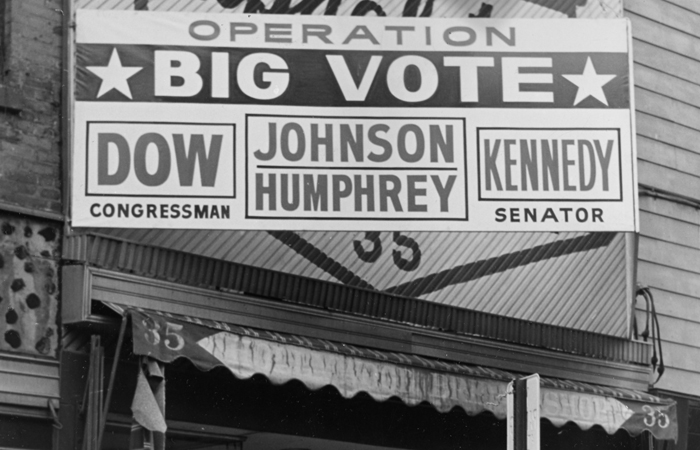Elected officials, interest groups, and activists from New York State.
The New York State Modern Political Archive (NYSMPA) was established in 1982 to document the work of individuals and private interest groups concerned with New York State public policy issues in the 20th century. Originally named the Archives of Public Affairs and Policy, the NYSMPA collects, preserves, and facilitates access to primary sources pertaining to New York State public affairs and policy, and now includes the personal papers of members of the gubernatorial administrations of Nelson A. Rockefeller; papers of former New York Congressional members and elected officials who served in New York State Legislature; and the official records and papers of numerous private groups, professional associations, individuals, public-sector labor unions, community groups, and other organizations concerned with Empire State public-policy issues.
